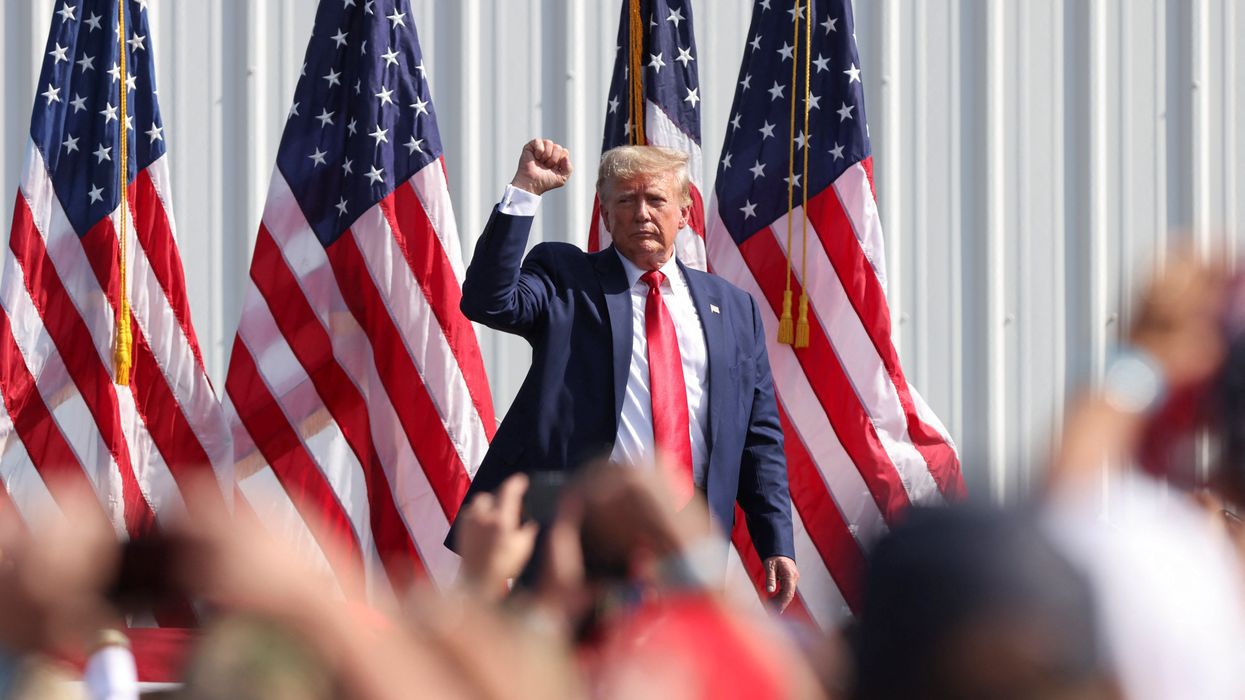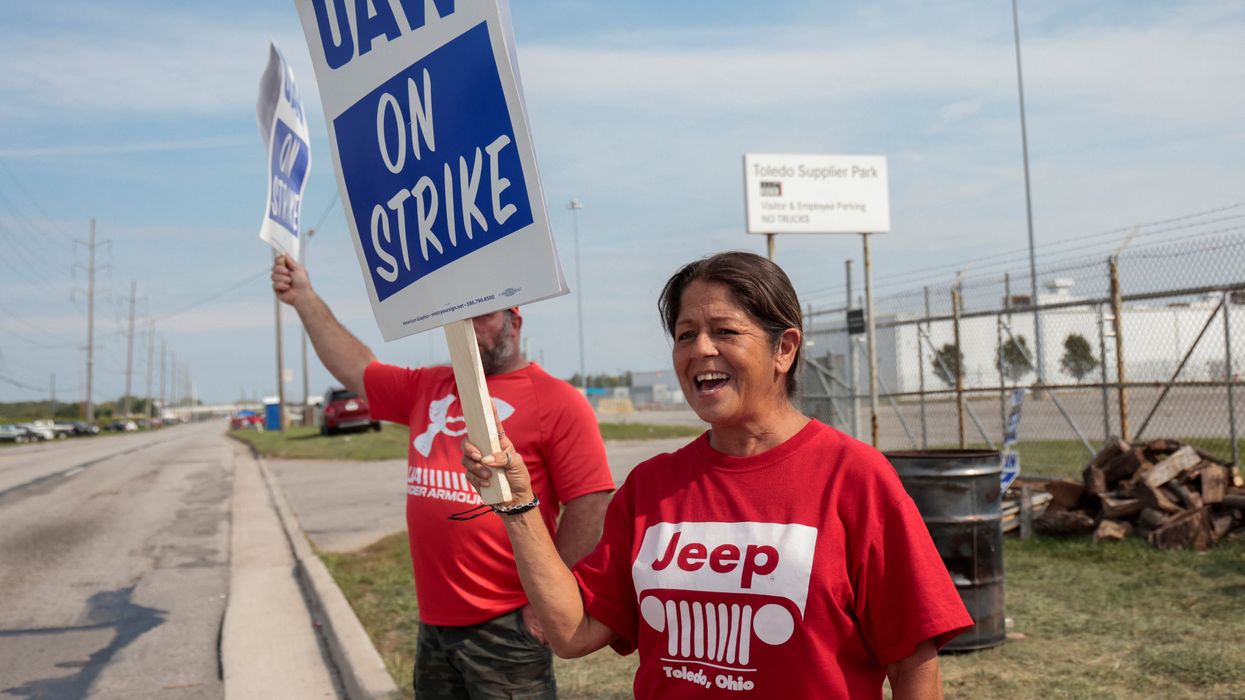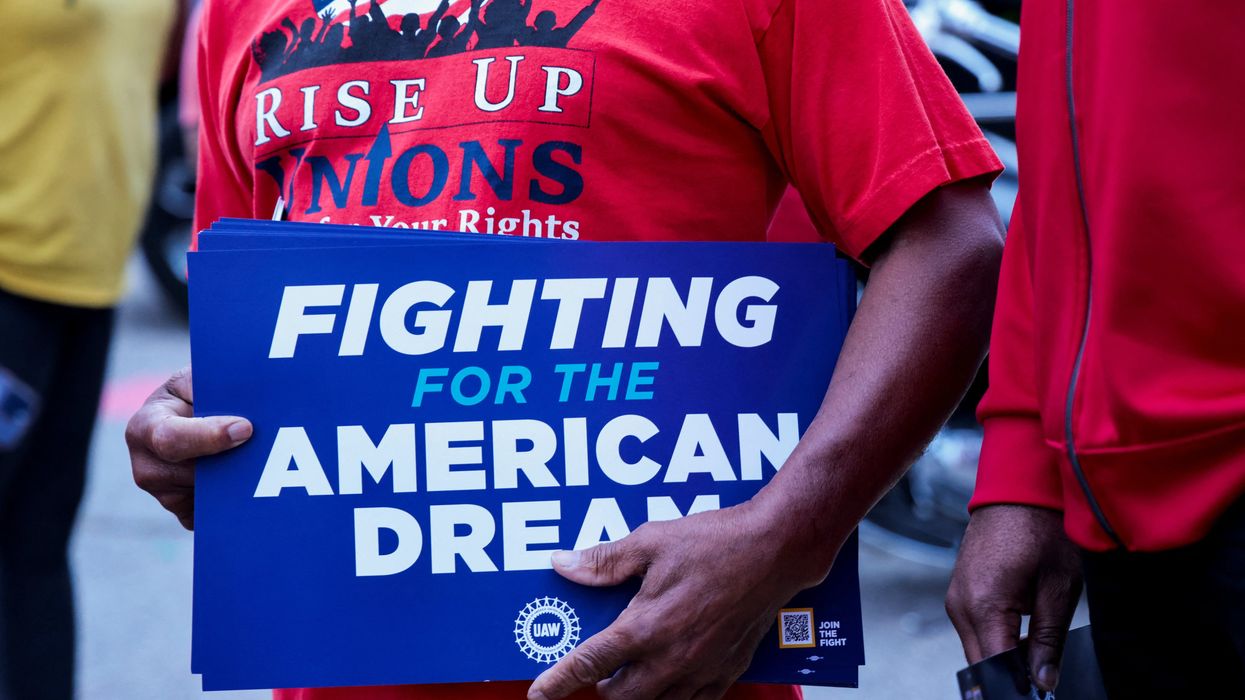What We're Watching
Trump makes his Michigan pitch
As autoworkers walk picket lines in 21 states, President Joe Biden and former President Donald Trump are both in Michigan, the heart of the American auto industry, trying to woo union workers.
Sep 26, 2023



